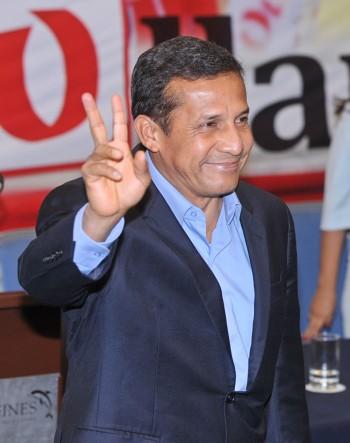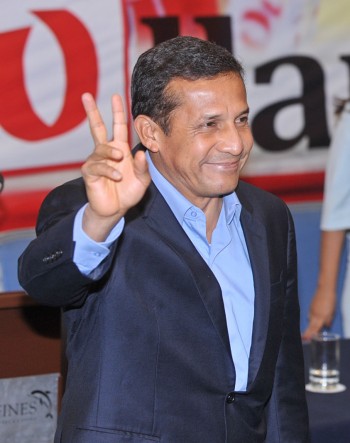Leftist Humala Wins Narrow Victory in Peru Elections
Left-wing presidential candidate Ollanta Humala won a narrow victory in Peru’s presidential elections on Sunday against first lady Keiko Fujimori.

CLAIMING VICTORY: Ollanta Humala is seen moments before declaring himself the victor of the final round of the June 5 elections. CRIS BOURONCLE/AFP/Getty Images
|Updated:

